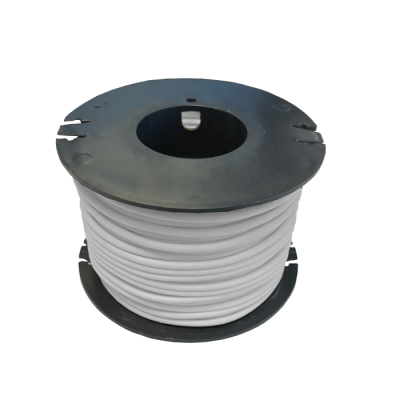When it comes to choosing wall finishes for your home or business, the range of materials available can be overwhelming. From wood and brick to stone and metal, each option has its merits. However, one material that has increasingly gained popularity in recent years is PVC wall cladding. Lightweight, durable, and highly versatile, PVC cladding offers a host of advantages over traditional materials, making it a smart choice for a variety of applications. In this post, we’ll explore the top benefits of PVC wall cladding and why it may just be the ideal solution for your next project.
1. Low Maintenance, Long-Lasting Durability
One of the standout benefits of PVC wall cladding is its exceptional low-maintenance nature. Unlike traditional materials like wood or metal, PVC doesn’t require regular treatments, such as staining, painting, or sealing. Wood cladding, for example, can warp, rot, or attract pests like termites if not properly maintained. PVC, on the other hand, is resistant to moisture, mould, and mildew, making it a much more hassle-free option for both interior and exterior walls.
Moreover, PVC cladding is incredibly durable. While materials like brick or stone are long-lasting, they can be prone to cracking or chipping over time. PVC, being flexible and impact-resistant, can withstand minor bumps and knocks without losing its aesthetic appeal. This means fewer repairs and replacements, saving you both time and money in the long run.
2. Weather Resistance for Outdoor Applications
If you’re considering wall cladding for the exterior of your property, the weather is an important factor to consider. PVC cladding excels in outdoor conditions, offering superior resistance to UV rays, rain, snow, and fluctuating temperatures. Unlike wood, which can swell or crack with exposure to moisture, or metal, which can rust over time, PVC will maintain its appearance and integrity in all weather conditions.
This makes PVC cladding an ideal choice for coastal areas or regions that experience heavy rainfall, extreme sun exposure, or cold winters. With PVC, you don’t have to worry about peeling paint, fading colours, or the high maintenance costs that often come with traditional cladding materials.
3. Energy Efficiency and Insulation Properties
Another significant advantage of PVC wall cladding is its insulating properties. It provides an extra layer of thermal insulation, which can help regulate indoor temperatures and reduce energy bills. PVC’s structure makes it resistant to both heat loss in the winter and heat gain in the summer, creating a more comfortable living or working environment.
When installed as part of a well-insulated building, PVC cladding can contribute to a significant reduction in heating and cooling costs. For those looking to make their property more energy-efficient, PVC is an eco-friendly choice that aligns with modern sustainability goals.
4. Wide Range of Styles and Finishes
Gone are the days when PVC cladding was limited to simple white or grey panels. Today’s PVC wall cladding comes in a wide variety of styles, finishes, and colours that can suit any design aesthetic. Whether you’re looking for a sleek, modern look or a more traditional appearance, PVC can easily be tailored to fit your vision.
For instance, there are PVC panels that mimic the appearance of wood or stone, offering the aesthetic appeal of these natural materials without the associated maintenance. Whether you want the rustic charm of timber or the elegant appearance of natural stone, PVC cladding gives you the flexibility to achieve the look you desire while benefiting from its low-maintenance, durable properties.
5. Cost-Effective Solution
When comparing the cost of PVC wall cladding with traditional materials like wood, brick, or stone, PVC is often the more affordable option. Not only is the material itself typically cheaper, but the installation process is more straightforward and quicker, reducing labour costs. Traditional materials often require skilled tradespeople for proper installation, especially for complex finishes like brick or stone. PVC cladding, however, can be easily installed by both professionals and experienced DIYers, offering significant savings on installation.
Additionally, the low maintenance and long lifespan of PVC mean that you won’t have to continually invest in repairs, treatments, or replacements—something that can’t be said for traditional materials like wood or metal, which require ongoing care and upkeep.
6. Eco-Friendly and Recyclable
For environmentally-conscious consumers, PVC cladding offers a range of sustainable benefits. While the production of PVC does have an environmental impact, the material itself is highly recyclable, and many manufacturers now produce eco-friendly PVC options. By choosing PVC cladding, you’re helping to reduce waste, as the material can be reused and repurposed, cutting down on landfill contributions.
Moreover, due to its durability and low-maintenance nature, PVC cladding has a longer lifespan compared to other materials, meaning fewer resources are consumed over time for repairs and replacements. If you’re looking to reduce your environmental footprint, PVC cladding presents a practical and sustainable option.
7. Customisable to Suit Any Project
Whether you’re outfitting a commercial space, updating your home’s interior, or adding cladding to a garden shed, PVC is versatile and adaptable to suit nearly any application. The panels come in a range of sizes and can be easily cut to fit specific dimensions, making them perfect for even the most unique or custom designs. Additionally, there are different textures and finishes available, such as glossy, matte, or embossed, allowing you to personalise the look of your cladding to suit your aesthetic needs.
For those looking to make a statement, coloured PVC panels are available in a range of hues, enabling you to create bold, eye-catching walls. From feature walls to full room installations, PVC cladding offers limitless design possibilities.
8. Soundproofing Capabilities
Another lesser-known benefit of PVC cladding is its soundproofing capabilities. While traditional materials like brick and stone can offer some level of acoustic insulation, PVC has been shown to reduce noise transmission more effectively. This makes PVC cladding an excellent choice for areas where soundproofing is important, such as offices, media rooms, or residential areas close to noisy streets.
PVC wall cladding stands out as a highly versatile and practical material that offers a range of advantages over more traditional cladding options. From its low-maintenance properties and weather resistance to its cost-effectiveness and wide design possibilities, PVC is an ideal choice for both residential and commercial applications. Whether you’re looking to enhance the interior of your home, upgrade your business premises, or improve your property’s exterior, PVC cladding provides a durable, stylish, and environmentally friendly solution.
By opting for PVC, you can enjoy the peace of mind that comes with knowing your cladding will look great and perform well for many years to come.


































